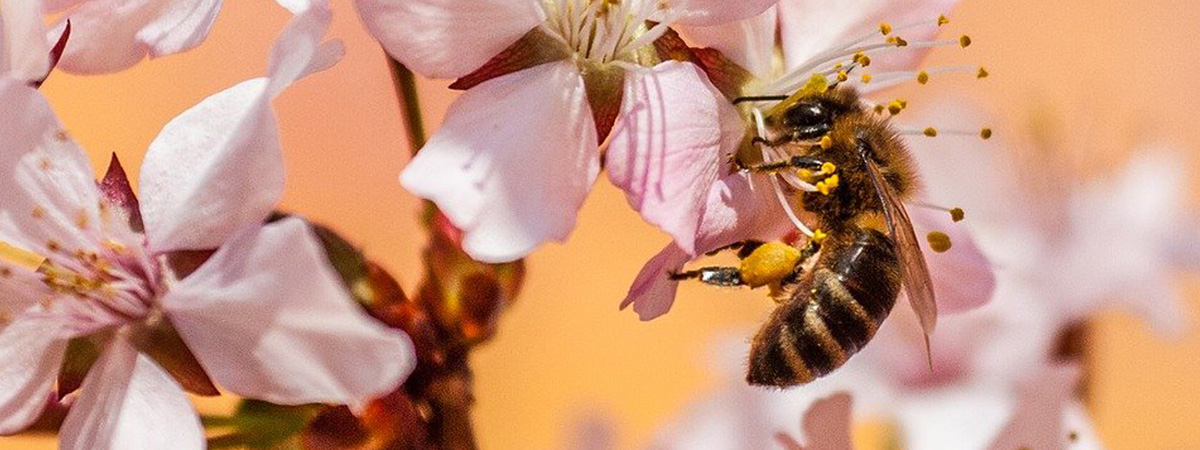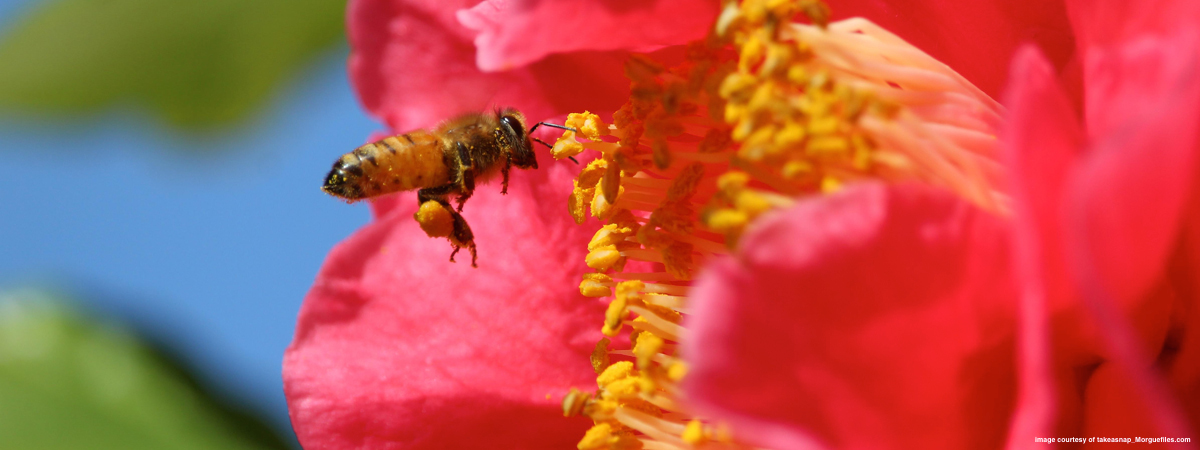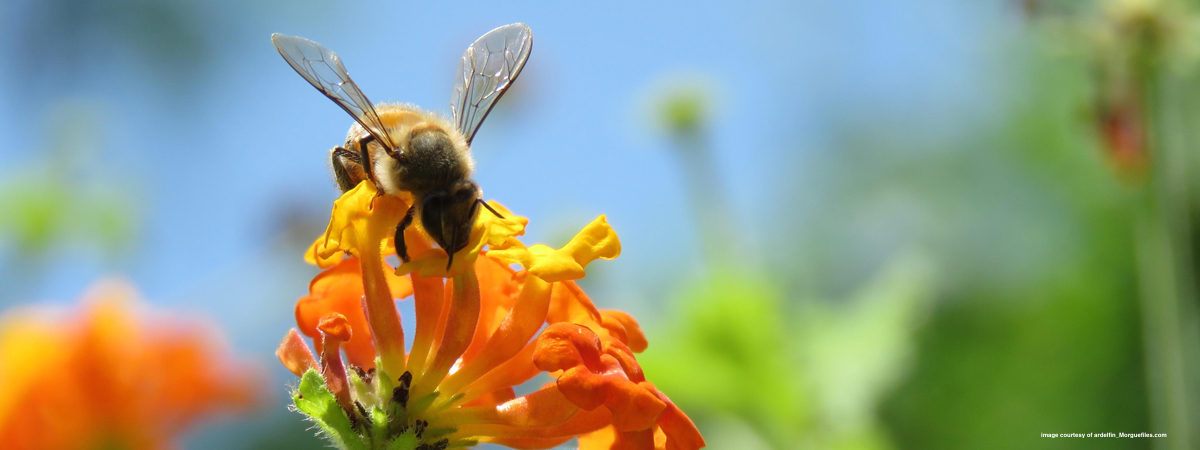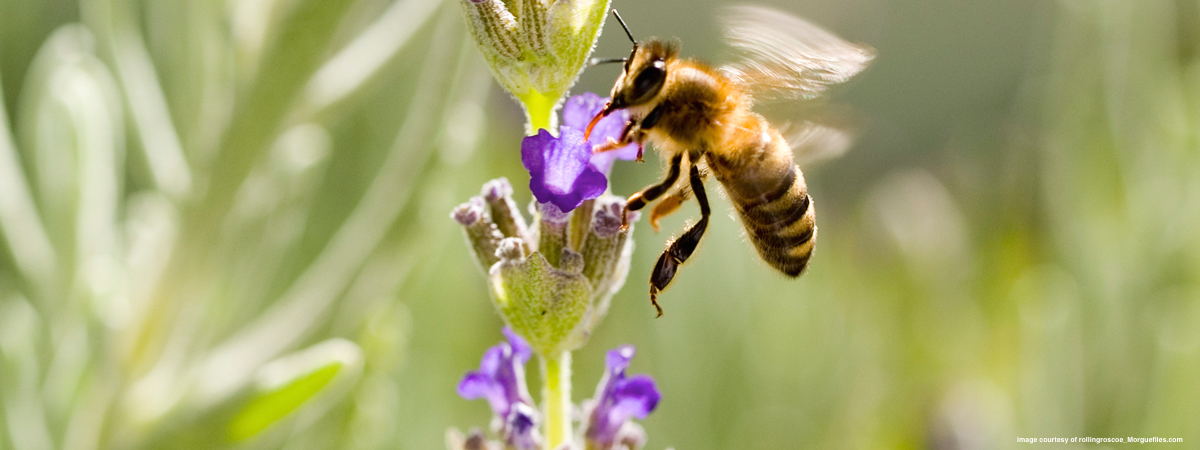Scientific Research and Publications about Bee Propolis & cancer
To stay up to date with the latest Propolis research posts, follow our Propolis Science facebook page facebook.com/PropolisScience.
• Honeybee venom kills aggressive breast cancer cells.
• Pancreatic Cancer (PDAC): Introduction of Evidence-Based Complementary Measures into Integrative Clinical Management.
• Apigenin as an anticancer agent.
• Isoflavonoids from Brazilian red propolis down-regulate the expression of cancer-related target proteins: A pharmacogenomic analysis.*
• MODULATOR IMPACTS OF PROPOLIS EXTRACT AGAINST DOXORUBICIN MEDIATED CARCINOGENESIS ON HEPATOCELLULAR CARCINOMA AND Drosophila SOMATIC CELLS.*
• Algerian Propolis Potentiates Doxorubicin Mediated Anticancer Effect Against Human Pancreatic PANC-1 Cancer Cell Line through Cell Cycle Arrest, Apoptosis Induction and P-Glycoprotein Inhibition*
• Anticancer Activity in Honeybee Propolis: Functional Insights to the Role of Caffeic Acid Phenethyl Ester and Its Complex With γ-Cyclodextrin.*
• Anticancer activity of the supercritical extract of Brazilian green propolis and its active component, artepillin C: Bioinformatics and experimental analyses of its mechanisms of action.*
• Anticancer Potential of Dietary Polyphenols*
• Antioxidant and Health Properties of Beehive Products Against Oxidative Stress-Mediated Carcinogenesis*
• Cytotoxic constituents of propolis inducing anticancer effects: a review.*
• Positive effects of antitumor drugs in combination with propolis on canine osteosarcoma cells (spOS-2) and mesenchymal stem cells.*
• Caffeic acid phenethyl ester guards against benign prostate hypertrophy in rats: Role of IGF‐1R/protein kinase‐B (Akt)/β‐catenin signaling.*
• Inhibitory effect of Thai propolis on human osteoclastogenesis.*
• Cytotoxic, proapoptotic and antioxidative potential of flavonoids isolated from propolis against colon (HCT-116) and breast (MDA-MB-231) cancer cell lines.*
• Efficacy of a Propolis-Based Syrup (FARINGEL) in Preventing Radiation-Induced Esophagitis in Locally Advanced Lung Cancer*
• Chemical Constituents of Propolis from Vietnamese Trigona minor and Their Antiausterity Activity against the PANC-1 Human Pancreatic Cancer Cell Line.*
• Algerian Propolis Potentiates Doxorubicin Mediated Anticancer Effect against Human Pancreatic PANC-1 Cancer Cell Line through Cell Cycle Arrest, Apoptosis Induction and P-Glycoprotein Inhibition.*
• Standardization, chemical profiling, in vitro cytotoxic effects, in vivo anti-carcinogenic potential and biosafety profile of Indian propolis.*
• Hypothesis: Induction of biomarkers for detection of colonic neoplasms.*
• Chrysin attenuates testosterone-induced benign prostate hyperplasia in rats.*
• Synergistic anti-cancer effects of galangin and berberine through apoptosis induction and proliferation inhibition in oesophageal carcinoma cells.*
• Evaluation of the miRNA profiling and effectiveness of the propolis on B-cell acute lymphoblastic leukemia cell line.*
• Chemical constituents of Brazilian Propolis from the state of Bahia and their growth inhibitory activities against cancer cells.*
• Propolis changes the anticancer activity of temozolomide in U87MG human glioblastoma cell line*
• Involvement of blood mononuclear cells in the infertility, age-associated diseases and cancer treatment.*
• Chrysin induces death of prostate cancer cells by inducing ROS and ER stress.*
• NADH autofluorescence, a new metabolic biomarker for cancer stem cells: Identification of Vitamin C and CAPE as natural products targeting “steaminess”.*
• Molecular mechanism of cardol, isolated from Trigona incisa stingless bee propolis, induced apoptosis in the SW620 human colorectal cancer cell line.*
• The effect of royal jelly on the growth of breast cancer in mice.*
• Elementery Analysis and anti-Tumor Activity on Glioblastoma Cell Lines of Propolis Samples from Giresun Province of Turkey*
• Beehive extract shows potential as prostate cancer treatment*
• Chemoprevention of colon carcinogenesis by phenylethyl-3-methylcaffeate.*
• Molecular Characterization of Propolis-Induced Cell Death in Saccharomyces cerevisiae*
• Apoptosis induced by propolis in human hepatocellular carcinoma cell line.*
• Post-initiation effects of a super critical extract of propolis in a rat two-stage carcinogenesis model in female F344 rats.*
• Effects of propolis flavonoids pinobanksin-3-acetate on expression of PDE4D and Gadd45G gene in human colon cancer cell line*
• The bioflavonoid galangin suppresses the growth of ehrlich ascites carcinoma in Swiss Albino mice: a molecular insight.*
• Chemoprevention of Oral Cancer by Saudi Arabian Propolis: An Overview*
• Cytotoxic Effect of Turkish Propolis on Liver, Colon, Breast, Cervix and Prostate Cancer Cell Lines*
• Comparison of Radical Scavenging Activity, Cytotoxic Effects and Apoptosis Induction in Human Melanoma Cells by Taiwanese Propolis from Different Sources.*
• Antioxidant and anti-cancer cell proliferation activity of propolis extracts from two extraction methods.*
• Antitumor Activity of Chinese Propolis in Human Breast Cancer MCF-7 and MDA-MB-231 Cells.*
• Randomized DoubleBlind PlaceboControlled Trial of Propolis for Oral Mucositis in Patients Receiving Chemotherapy for Head and Neck Cancer.*
• Brazilian red propolis: phytochemical screening, antioxidant activity and effect against cancer cells.* – PDF Available
• Antiproliferative activity of New Zealand propolis and phenolic compounds vs human colorectal adenocarcinoma cells.*
• Brazilian green propolis induced apoptosis in human lung cancer A549 cells through mitochondrial-mediated pathway.*
• CAPE Analogs Induce Growth Arrest and Apoptosis in Breast Cancer Cells.* – PDF Available
• Caffeic Acid phenethyl ester and ethanol extract of propolis induce the complementary cytotoxic effect on triple-negative breast cancer cell lines.* – PDF Available
• Caffeic Acid phenethyl ester is a potential therapeutic agent for oral cancer.* – PDF Available
• Future opportunities in preventing ototoxicity: Caffeic acid phenethyl ester may be a candidate (Review).*
• Emerging Adjuvant Therapy for Cancer: Propolis and its Constituents.*
• Brazilian red propolis attenuates hypertension and renal damage in 5/6 renal ablation model.* – PDF Available
• Screening baccharin analogs as selective inhibitors against type 5 17β-hydroxysteroid dehydrogenase (AKR1C3).*
• Brazilian red propolis induces apoptosis-like cell death and decreases migration potential in bladder cancer cells.* – PDF Available
• Histone deacetylase inhibitory effect of Brazilian propolis and its association with the antitumor effect in Neuro2a cells.* – PDF Available
• Galangin inhibits growth of human head and neck squamous carcinoma cells in vitro and in vivo.* – PDF Available
• Review of the anticancer activities of bee products.*
• Synthesis of non-prenyl analogues of baccharin as selective and potent inhibitors for aldo-keto reductase 1C3.*
• Caffeic acid phenethyl ester: A review of its antioxidant activity, protective effects against ischemia-reperfusion injury and drug adverse reactions.*
• Immunomodulatory efficacy of ethanol extract of propolis on tumor-bearing mice with disseminated candidiasis.*
• Potential chemoprotective effects of green propolis, L-lysine and celecoxib on bone marrow cells and peripheral blood lymphocytes of Wistar rats subjected to bladder chemical carcinogenesis.* – PDF Available
• Propolis in dentistry and oral cancer management.* – PDF Aailable
• Activation of neutral-sphingomyelinase, MAPKs, and p75 NTR-mediating caffeic acid phenethyl ester-induced apoptosis in C6 glioma cells.* – PDF Available
• Antitumor Activity of Chinese Propolis in Human Breast Cancer MCF-7 and MDA-MB-231 Cells.* – PDF Available
• Immunomodulatory properties of green propolis.*
• Korean propolis suppresses angiogenesis through inhibition of tube formation and endothelial cell proliferation.*
• Propolis cinnamic acid derivatives induce apoptosis through both extrinsic and intrinsic apoptosis signaling pathways and modulate of miRNA expression.*
• Comparative evaluation of antiproliferative effects of Brazilian green propolis, its main source Baccharis dracunculifolia, and their major constituents artepillin C and baccharin.*
• Modulatory activity of Brazilian red propolis on chemically induced dermal carcinogenesis.* – PDF Available
• Mucoadhesive propolis gel for prevention of radiation-induced oral mucositis.*
• Propolis and its Active Component, Caffeic Acid Phenethyl Ester (CAPE), Modulate Breast Cancer Therapeutic Targets via an Epigenetically Mediated Mechanism of Action.* – PDF Available
• Amelioration of renal carcinogenesis by bee propolis: a chemo preventive approach.* – PDF Available
• Antioxidant and anti-cancer cell proliferation activity of propolis extracts from two extraction methods.* – PDF Available
• Ethanolic Extract of Polish Propolis: Chemical Composition and TRAIL-R2 Death Receptor Targeting Apoptotic Activity against Prostate Cancer Cells.* – PDF Available
• Chemical and botanical characterization of Chilean propolis and biological activity on cariogenic bacteria Streptococcus mutans and Streptococcus sobrinus.* – PDF Available
• A Taiwanese Propolis Derivative Induces Apoptosis through Inducing Endoplasmic Reticular Stress and Activating Transcription Factor-3 in Human Hepatoma Cells.* – PDF Available
• Synergism between propolis and hyperthermal intraperitoneal chemotherapy with cisplatin on ehrlich ascites tumor in mice.*
• Caffeic acid phenethyl ester downregulates phospholipase D1 via direct binding and inhibition of NFκB transactivation.*
• Propolis augments apoptosis induced by butyrate via targeting cell survival pathways.* – PDF Available
• Synergistic effect of radachlorin mediated photodynamic therapy on propolis induced apoptosis in AMC-HN-4 cell lines via caspase dependent pathway.*
• A flavonoid chrysin suppresses hypoxic survival and metastatic growth of mouse breast cancer cells.*
• Propolis and its emerging anti-neoplastic effects: beyond its role in oral dysplasia.* – PDF Available
• Galangin induces human colon cancer cell death via the mitochondrial dysfunction and caspase-dependent pathway.*
• Evaluation of genotoxicity and antigenotoxicity of artepillin C in V79 cells by the comet and micronucleus assays.*
• Evaluation of estrogenic, antiestrogenic and genotoxic activity of nemorosone, the major compound found in brown Cuban propolis.* – PDF Available
• A double blind randomised placebo controlled study of propolis (bee glue) effectiveness in the treatment of severe oral mucositis in chemotherapy treated children.*
• Portuguese propolis disturbs glycolytic metabolism of human colorectal cancer in vitro.* – PDF Available
• CAPE promotes TRAIL-induced apoptosis through the upregulation of TRAIL receptors via activation of p38 and suppression of JNK in SK-Hep1 hepatocellular carcinoma cells.*
• Caffeic acid phenethyl ester synergistically enhances docetaxel and paclitaxel cytotoxicity in prostate cancer cells.*
• Anticancer activity of Indian stingless bee propolis: an in vitro study.* – PDF Available
• Caffeic Acid phenethyl ester inhibits epithelial-mesenchymal transition of human pancreatic cancer cells.* – PDF Available
• In vivo and in vitro antıneoplastic actions of caffeic acid phenethyl ester (CAPE): therapeutic perspectives.*
• Chrysin overcomes TRAIL resistance of cancer cells through Mcl-1 downregulation by inhibiting STAT3 phosphorylation.*
• Caffeic acid phenethyl ester suppresses proliferation and survival of TW2.6 human oral cancer cells via inhibition of Akt signaling.* – PDF Available
• Polyphenols Isolated from Propolis Augment TRAIL-Induced Apoptosis in Cancer Cells.* – PDF Available
• Analysis of chemical composition and bioactive property evaluation of Indian propolis.* – PDF Available
• A pilot, randomized, placebo-controlled, double-blind phase 0/biomarker study on effect of artepillin C-rich extract of Brazilian propolis in frequent colorectal adenoma polyp patients.*
_________________________________________________________________
Scientific Research and Publications about Bee Propolis
Propolis Science information is here to provide you with easy access to research and scientific papers regarding bee propolis. You will find work from respected institutions related to bee propolis in general and also specific types of bee propolis. The information mentioned here is not offered as specific medical advice for any individual and is not intended to be used for self-diagnosis or treatment. This content should not substitute for medical advice from a health professional. Always consult your healthcare practitioner regarding any health or medical conditions.
* THESE STATEMENTS HAVE NOT BEEN EVALUATED BY THE FOOD AND DRUG ADMINISTRATION. THIS IS NOT INTENDED TO DIAGNOSE, TREAT CURE OR PREVENT ANY DISEASE.




